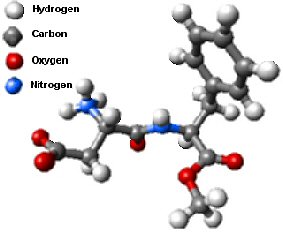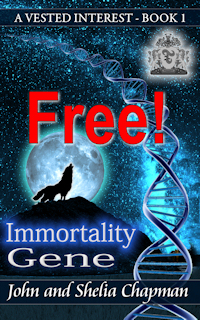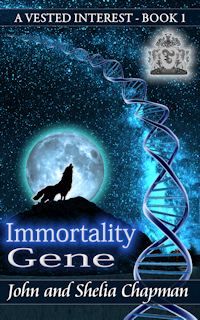Aspartame
 To some people it's an insidious poison which is destroying our health.
To others it's a harmless substance which allows us to indulge our sweet
tooth but doesn't make us fat or cause tooth decay.
To some people it's an insidious poison which is destroying our health.
To others it's a harmless substance which allows us to indulge our sweet
tooth but doesn't make us fat or cause tooth decay.
So what's the truth? Read the arguments from both sides and you'll find a bewildering mass of facts, half truths, lies and paranoia. Do a search for it on Internet and you'll find 'experts' from both camps completely at odds with each other together with many unqualified opinions mostly coming down against it. There have been studies and counter studies, claims and counter claims, allegations of corruption and indignant denials.
In this page I've set out to look at both sides. I will make no judgments - that's up to you to decide.
What is Aspartame?
Aspartame is an artificial sweetener discovered by accident in 1965 when a chemist, Jim Schlatter, working for Searle, licked a finger contaminated with it. (Zero points for lab technique). Schlatter investigated and quickly realized that he had discovered a new sweetener of great potential.
Aspartame's other names
E951, Tropicana Slim, Equal, NutraSweet and Canderel are all Aspartame.
What will I find it in?
The vast majority of 'diet', 'Sugar free', and 'No added sugar' drinks contain Aspartame. You'll also find it in some yogurts, ice cream and other confectionary - especially chewing gum, those labeled 'sugar free' and in many medicines designed to be chewed or drank. You shouldn't find it in baked products since it decomposes above 98°C. In the UK look for text near the product name stating 'with sweetener/s'. Aspartame will also be listed in the ingredients if it's present along with a statement 'Contains a source of phenylalanine'.
The Case For Aspartame
Aspartame is made from two amino acids, aspartic acid and phenylalanine. Methanol is also used in it's manufacture. It is about 180 times as sweet as cane sugar (sucrose). When used as a sugar replacement less than 1% of the amount is required so 99.4% of the calories can be replaced.
Unlike sugars, Aspartame does not encourage bacteria in your mouth to make the acids which cause tooth decay.
In theory, since Aspartame breaks down in the body to substances which naturally are found in the body, Aspartame should be safe:
Aspartame is converted in the body to its components: aspartic acid, phenylalanine, and to methanol.
Aspartic acid is a naturally occurring amino acid. It is classified as "non-essential" because humans do not need to get it from their diets since they can make it from other things in the diet. Aspartic acid is used in the synthesis of new DNA, in urea synthesis, and as a neurotransmitter in the brain. Its level in the body is carefully regulated. If the body needs more aspartic acid, it makes more. If the body has a surplus of aspartic acid, it converts the excess to fumarate, which enters the tricarboxylic acid cycle and provides energy.
Phenylalanine is one of the "essential" amino acids, meaning that humans must get it from their diet. It is used in the body for the synthesis of tyrosine and several neurotransmitters. Excess phenylalanine is broken down to fumarate and acetoacetate, both of which are part of normal energy metabolism. A few people (1 in 15,000) are not able to utilize phenylalanine normally. This condition is called phenylketonuria (PKU). If it is not detected and treated, this condition can lead to mental retardation. Persons having this genetic defect must control their intake of phenylalanine and as a result should not consume products containing Aspartame.
Methanol is a type of alcohol encountered in the diet, especially in fruit. The table below shows the amount of methanol you would get from a can of diet soft drink, along with amounts found in the same volume of several fruit juices. Methanol is well known to be very poisonous in large quantity. 'Large quantity' means 8 grams (10ml or two teaspoons). Your liver can deal with smaller quantities of methanol. If you start drinking enough methanol to get drunk, you overwhelm your liver and serious brain damage, blindness or death results
| Orange juice | 0.018 gram |
| Apple juice | 0.021 gram |
| Diet soft drink (12 oz can) | 0.024 gram |
| Grape juice | 0.046 gram |
| Tomato juice | 0.085 gram |
A little maths shows that you would have to drink in the order of 300 cans of Aspartame sweetened drink to cause methanol poisoning. Unfortunately it's not quite that simple, see 'Cons' below.
The worldwide market of Aspartame in 2007 has been reported as around 17,000 tonnes, worth US$637 million. This represents a replacement of over 3 million tonnes of sugar at a value of US$1.9 billion.
The case against Aspartame
Of all the substances approved for human use by the US FDA no other has raised quite the controversy of Aspartame. Until 1995 (When the FDA stopped recording complaints) there were over 10,000 complaints of symptoms which disappeared when Aspartame was avoided. Here are a few claims made against it:
- Decreased vision and/or other eye problems (blurring, "bright flashes," tunnel vision, protruding, bleeding)
- Pain (one or both eyes)
- Decreased tears, trouble with contact lens
Blindness (one or both eyes) - Tinnitus ("ringing," "buzzing")
- Severe intolerance for noise
- Marked impairment of hearing
- Headaches
- Dizziness, unsteadiness, or both
- Confusion, memory loss, or both
- Severe drowsiness and sleepiness
- Paresthesias ("pins and needles," "tingling")
or numbness of the limbs
- Convulsions (grand mal epileptic attacks)
- Petit mal attacks and "absences"
- Severe slurring of speech
- Severe tremors
- Severe "hyperactivity" and "restless legs"
- Atypical facial pain
- Psychological - Psychiatric
- Severe depression
- "Extreme irritability"
- "Severe anxiety attacks"
- Recent "severe insomnia"
- "Severe aggravation of phobias"
- Palpitations, tachycardia (rapid heart action)
- "Shortness of breath"
- Atypical chest pain
- Recent hypertension (high blood pressure)
- Nausea
- Diarrhoea
- Associated gross blood in the stools
- Abdominal pain
- Pain on swallowing
- Severe itching without a rash
- Severe lip and mouth reactions
- Urticaria (hives - nettle rash)
- Aggravation of respiratory allergies
- Problems with diabetes: loss of control; precipitation of clinical
diabetes; aggravation or simulation of diabetic complications
- Severe reduction or cessation of periods
- Paradoxic weight gain
- Marked weight loss
- Marked thinning or loss of the hair
- Aggravated hypoglycaemia (low blood sugar attacks)
- Frequency of voiding (day and night), burning on urination (dysuria),
or both
- Excessive thirst
- Severe joint pains
- "Bloating"
- Fluid retention and leg swelling
- Increased susceptibility to infection
- myoclonic jerks (twitching including hiccups)
Various doctors have suggested Aspartame poisoning may be responsible for cases diagnosed as:
- Brain tumours
- Multiple sclerosis
- Epilepsy
- Chronic fatigue syndrome
- Parkinson's Disease
- Alzheimer's
- Mental retardation
- Lymphoma
- Birth defects
- Fibromyalgia
- Diabetes
- Arthritis (including Rheumatoid)
- Chemical Sensitivities
- Attention Deficit Disorder
- reduced fertility in men
The manufacturers of Aspartame claim all the above are unfounded and cite numerous studies by their employees or consultants which show the product is safe. It's interesting to note however that where such studies are funded by the manufacturer 95% come out as 'Safe' but where studies are independent the reverse appears to be true. Early studies by Searle indicated that Aspartame caused tumours in rats fed it. For that reason there was a significant delay between it's discovery and approval for it's use as an additive. According to one source I found 'Searle Pharmaceutical in their stock reports, just prior to that, told their stockholders they would never put Aspartame on the market for human consumption because it was clearly too toxic. The Searle family later sold their stock and, en masse, walked out of the company when Aspartame was marketed.'
One of Aspartame's critics is Mr. Roger Williams (UK MP) In a House of Commons question he cast doubts on the way Aspartame received FDA approval - 'The history of Aspartame's approval is mired in controversy, not least because of the likes of Donald Rumsfeld "calling in his markers" to get it approved. The science that supported its approval was biased, inconclusive and incompetent. Aspartame is in a higher category of risk than Sudan 1, the UK's fastest recalled food substance. However, bad science, bad regulation and bad politics have left the bigger of those two threats in everyday products on our supermarket shelves. '. Mr Williams is not alone in his questioning of the FDA approval. in a book 'Deadly Deception' I found the following:
Searle, a drug company with little experience in food regulations, began studies on aspartame to comply with the FDA approval process. Early tests of the chemical additive showed it produced microscopic holes and tumours in the brains of experimental mice and epileptic seizures in monkey. Despite this however, the FDA approved aspartame as a dry-foods additive in 1974 and for the first time, made the data on which this decision was made public. Brain researcher Dr. John Olney from Washington University in St. Louis discovered two studies showing brain tumours in rats and petitioned the FDA for a public hearing. Others found information showing aspartame caused epileptic seizures in monkeys and damage to the human eye.
Faced with this evidence of possible health dangers, the FDA granted the hearing requests. In lieu of withdrawing its aspartame approval, the agency requested that Searle refrain from marketing the sweetener until after completion of the hearing. It then proposed that a Public Board of Inquiry (PBOI) review the matter.
In July of 1975, as the FDA prepared for the PBOI review - an FDA inspector conducted a routine inspection of Searle's Skokie, Ill. testing facilities, and found many "deviations" from proper procedure protocols. and a Special Commissioner's Task Force was set up to review Searle's laboratories.
In December of 1975, the Task force reported serious problems with Searle's research on a wide range of products, including aspartame. It found eleven other pivotal studies conducted in a manner so flawed that it raised more doubts concerning aspartame's safety, and created the possibility of serious criminal liability for G.D. Searle.
The FDA delayed aspartame's approval. They contracted a group of university pathologists (curiously at Searle's expense) to review most of the studies and a task force was set up to review three selected studies.
The Searle-funded pathologists found no serious problems. The FDA task force, on the other hand, found Searle's key tumour safety study unreliable with no less than 52 major discrepancies in Searle's clinical conduct of its toxicological studies. They included no clear record being kept of the doses fed to rats; antibiotics being given to animals showing symptoms but not being reported; tumours contracted by rats during the experiment being surgically removed before dissection and not reported; and, above all, no clear record of death. One record shows an animal was alive, then dead, then alive, then dead. Despite this damning report their recommendations were ignored. FDA Chief Counsel Richard Merrill submitted a thirty-three-page letter to U.S. attorney Samuel Skinner recommending a grand jury investigation into G.D. Searle "for concealing material facts and making false statements in reports of animal studies to establish the safety of aspartame." Two specific studies of concern were cited. No action was taken, and Skinner allowed the statue of limitations to run out. Along with two of his aides, Skinner joined Searle's law firm shortly after that!
The FDA organized a public board of enquiry which blocked aspartame marketing until the tumour studies could be explained. Unless the FDA commissioner overruled the board, the matter was closed.
In November 1980, Ronald Reagan was elected U.S. President. Donald Rumsfeld (former congressman from Skokie, Illinois, former White House Chief of Staff, and twice former Secretary of Defense) had been President of G.D. Searle since January 1977. He left Searle and joined the Reagan transition team. In January 1981, Rumsfeld stated that he would call in his chips and get aspartame approved by the end of the year. On January 25th, the day President Reagan took office, the previous FDA commissioner's authority was suspended, and the next month, the appointed commissioner's job went to Dr. Arthur Hull Hayes, a professor and Defense Department contract researcher. In July of that year, Dr. Hayes, defying the FDA PBOI, approved aspartame for dry foods - his first major decision in office. In November 1983, the FDA approved aspartame for soft drinks - Hayes' last decision since by November 1983, Hayes was under fire for accepting corporate gifts. He left the agency to work at Searle's public-relations firm as senior medical advisor.
Shortly after the FDA soft-drink approval, Searle began test marketing, and complaints began to arrive at the FDA's doorstep, such as dizziness, blurred vision, headaches and seizures.
The complaints were more serious than the agency had ever received on any food additive. In 1985, the FDA asked the Centers for Disease Control (CDC) to review the first 650 complaints on aspartame (there were over 10,000 registered complaints as early as 1991). The CDC realized that the symptoms in approximately twenty-five percent of the complainants stopped and then restarted, either purposely or by accident, when aspartame use was stopped and then restarted. The FDA discounted their report.Time progressed and aspartame use increased. According to data released by 1995, human brain tumours, like those in the animal studies, had risen ten percent, and previously benign tumours grew forcefully. Searle and the FDA deputy commissioner defended Aspartame saying that the data posed no problem. Two years later, this FDA deputy commissioner became vice president of clinical research for Searle.
From 1985 to 1995, approximately 400 aspartame research studies were performed both by Searle researchers and independent scientists. Most interestingly, those studies finding no problems with Aspartame were one hundred percent funded by G.D. Searle. All studies funded by non-industry sources raised very serious questions and doubts concerning Aspartame's safety in the public food supply.
In 2005 the results of a large seven-year study into the long-term effects of eating aspartame in rats by the European Ramazzini Foundation for cancer research in Bologna, Italy were released. The study of 1,900 rats found evidence that aspartame caused leukaemia and lymphoma cancer in female rats. The study showed that there was no statistically significant link between aspartame and brain tumours The study, raised concerns about the levels of aspartame exposure. A review of the study by the European Food Safety Authority (EFSA), published May 2006, concluded that the increased incidence of lymphomas/leukaemias reported in treated rats was unrelated to aspartame, the kidney tumours found at high doses of aspartame were not relevant to humans, and that based on all available scientific evidence to date, there is no reason to revise the previously established Acceptable Daily Intake levels for aspartame. The Ramazzini Foundation responded to the EFSA findings by stating that they believed the 16% increase in incidence of lymphoma and leukaemia between the aspartame group and control group signified that these cancers were caused by aspartame ingestion.
Investigating the EFSA, I found claims that it's chair of EFSA's expert advisory committee is a paid consultant to the International Life Sciences Institute, an organization funded by major food and chemical industries. The chairmen of the EFSA (both past and present) have worked for Kraft, a food manufacturer who produce many Aspartame containing products.
In an article regarding the Ramazzini study I found:
'The new National Cancer Institute study significantly allays concerns raised by a recent Italian study that found that modest amounts of aspartame caused cancer in rats.
However, it's important to note that the people observed in the new study were only 50 to 69 years old. In contrast, the Italian researchers allowed the rats to die a natural death, equivalent to people living into their 80s, 90s, or older. If aspartame only causes cancer in truly elderly people, the new study wouldn't detect a problem. Also, the new study's means of measuring aspartame consumption -- food-frequency questionnaires -- is imprecise. That approach is not capable of detecting small increases in cancer rates.'
Source - centre for science in the public interest.
In a letter to New Scientist (issue 24 June 2006) Richard Laming of the British Soft Drinks Association states:
'Intense sweeteners allow consumers to enjoy soft drinks while restricting their calorie intake if they wish to do so. They are always listed on the label so that consumers can have the choice'
How does this stand up to reality? In a visit to my local Tesco supermarket
I was unable to find a single 2 litre bottle of lemonade which did NOT
contain Aspartame. In each case the bottle was passed to me to read because
my wife was unable to read the tiny print on the list of ingredients.
(The one brand of lemonade which I know does not contain Aspartame, 7-up,
was out of stock). Some choice!
Note: Since this page was produced some supermarkets Asda & Sainsburys) have withdrawn Aspartame from their 'own brand' drinks. In May 2008 Asda was sued by a major Aspartame manufacturer, Ajinomoto, because of Asda describing it as one of the 'nasties'. Initially Asda won the case which then went to the court of appeal. In the end Asa agreed to remove the word 'Aspartame' from their 'No nasties' statement. Now in 2012 Asda is selling drinks with artificial sweeteners including Aspartame.
The Cynics View
Aspartame is one tenth of the price of the same weight of sugar. Add to that the fact that you use 1/200th the amount of sugar and you can see that manufacturers save a considerable amount by using it. Some people say that Aspartame produces a craving for more so that you will consume more of the product too.
Diet drinks promoted in developing countries rob these areas of sugars which would help nutrition.
Pros and Cons
Pros |
Cons |
| Aspartame is 180 times as sweet as sugar so you need very little of it | It's a substance which induces a craving for more so you end up buying more |
| It costs less than sugar | Diet Coke is the same price as the original! The manufacturer/retailer makes more profit and hence has an incentive to promote it. |
| It does not cause tooth decay | The acid in soft drinks containing it does cause tooth decay and you drink more of this |
| It does not make you fat | People drinking diet drinks containing it still tend to gain weight (disputed but see http://www.cbsnews.com/8301-505269_162-57359222/study-diet-soda-can-lead-to-weight-gain/?tag=cbsnewsSectionContent.0 ) |
| Aspartame tastes like sugar | Aspartame leaves a bitter after taste |
| Aspartame enhances and extends flavours - gum containing it stays sweet longer | Many people have stopped buying gum because they can't find one which doesn't contain Aspartame |
| Aspartame benefits people with diabetes | Diabetics are healthier if they avoid sweet tasting foods. If it's sweet it's probably junk. |
| Studies show Aspartame is beneficial in weight control | Evidence indicates that it's of no benefit - you lose weight by eating less and exercising not by stopping sugar. |
| Aspartame is made from and breaks down to natural amino acids which the body can use. | It normally takes several enzymes to break bonds and liberate the amino acids. This is a slow process and the amino acids are released gradually into the blood stream. Aspartame breaks down too quickly and the products can be harmful because of this sudden abundance. |
| When Aspartame produces methanol there is less of it than you would find in some fruit juices | Methanol is not used by the body and is toxic. Fruit juices also contain ethanol and pectin which are natural antidotes to methanol. Aspartame products don't contain the antidotes. |
| The amount of methanol produced by Aspartame is nowhere near the recommended daily limit | A 25 kg
child consuming on a warm day, after exercising, two-thirds of a
two- litre bottle of soft drink sweetened with aspartame, child would consume 732 mg of aspartame and absorb over 70 mg of methanol. This is almost ten times the EPA's recommended daily limit of consumption for methanol. |
| There's no evidence that Aspartame is harmful | Some people still say that about smoking! |
Two last little bits...
We recently bought some strawberry yoghurt and on getting it home discovered that it was sweetened with aspartame. We wouldn't eat it and offered it to our cat (Who loves all flavours of yoghurt). He sniffed at it and wouldn't eat it. When I dabbed a little on his nose he licked it off and - well I've never seen a cat spit before!
In a book 'Sweet Deception' by Dr Joseph Mercola I found a report that if Aspartame is mixed with apple juice ants will take it back to the nest and all will be dead within 24 hours. I haven't tested this. I suggest that if you have an ant problem pick up one of these sweetener packets next time you buy a coffee and try it. It could be less expensive than those commercial ant poisons. Let me know what happens.
In conclusion
If you've stayed with me so far you might be interested to know that a search in Google for Aspartame finds 3,160,000 results of which about 70% claim it's harmful and 30% that it's safe. That seems to hold true for the medical profession also.
As for me - well I did say I wouldn't make any judgments - I can't since there seems convincing argument from both sides. So I'll reserve judgment until some scientist proves it one way or the other. In the meantime I'll keep reading the labels and stick to sugar, even if it does make me fat and rot my teeth.
You might also like to read Kelly Dorfman's post in the Huffington Post Does This Aspartame Make My Butt Look Fat?
Latest news
An article appeared in Scientific American on March 17 2015 based on research in Israel and suggesting artificial sweeteners may change our gut bacteria in dangerous ways. They can encourage bacteria to extract more from food and actually make you fatter. Read the article here
Is Sucralose a better alternative? I'm investigating this for a second article. Early indications convince me that I'm not going to consume anything with that in it either!
It appears that any sweetener stimulates your taste receptors and makes your brain send a message to the pancreas to release insulin (the fat storing hormone.) In the case of artificial sweeteners this depleats glucose levels in your body leaving you with a desire to eat more to restore levels. This would explain why diet soda consumers gain weight.
In general it's best to reduce gradually your sweet adiction but if you must indulge, which sweeteners are the best? Stevia in it's natural leaf form is probably the best. You can grow that yourself.
Research at Florida State University College indicates that consuming the artificial sweetener Aspartame may make you and your children dumber! Read the report in September 2023 Science Alert












